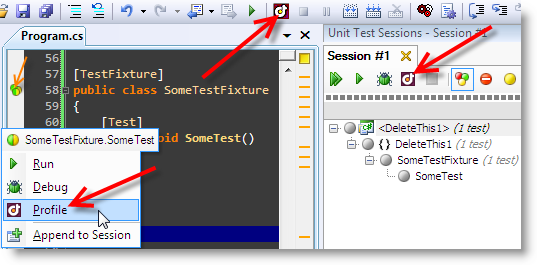Events do not a community make
It's a recurring theme. The relationship between the .Net developers community, the community leaders, Microsoft products, and Microsoft itself is an endless debate.
These last couple of weeks I've seen it come back again, strong, with the usual rants, departure notices, and rebuttals (which are getting fewer and further between).
The Microsoft .Net User Group Leaders
I run a small .Net UG in Chicago and when I have a chance to talk with other user group organizers, no matter how truly dedicated and valuable they are, I invariably come to the same sad conclusion.
The majority of the UG's act as mere outlets for showing off introductory talks on whatever is the shiny new technology from Microsoft. I wonder if all user groups have a clear (or even unclear) mission statement.
There's nothing intrinsically wrong with providing 100-level content about new products. The problem I see is that this doesn't really contribute much to build any kind of community and we can't make our UGs be restricted to just that.
In many UGs there's a lot of emphasis put in "Microsoft" and ".Net" but almost none in "User" or "Group." I think this is completely backwards. The UG leaders should have their focus on their members 100% of the time, thinking how the UG can be used to truly benefit their members, making all of us better developers, not just better .Net developers (Microsoft or ALT) and much less better MS developers.
The .Net Developer Community
We all know this community isn't exactly like other developer communities. I'd even go out on a limb and say that the use of the word community is a bit of a stretch, it's more like a demographic.
We grew up simply waiting what comes out of One Microsoft Way and attended MS-produced events and conferences. I think there are very few occurrences of organically formed community manifestations in .Net, like the Code Camps and ALT.NET.
That's something that can't be changed by just talking about it. As community members there are things we could do.
- Look for developer events even if you weren't forwarded one of those MSDN emails (there's Community Megaphone, Meetup, EventBrite, just to name a few).
- Attend non-MS user group meetings. Seriously. If you're a web developer, look for a JavaScript or Flash UG. If you're curious about the Windows Phone, check out the iPhone and Android users groups too. There's a lot to learn and much networking to be done.
- Attend Code Camps, even if costs you a small road trip. There's no way you'll ever regret doing this.
We will only be a community when we start acting as such.
Microsoft
At least in my region Microsoft does a very commendable work in trying to connect the .Net developers with non-.Net ones. More and more I see MS interested in leaving the community organization to community itself, providing some level of infrastructure, access to good speakers and sponsorship when possible.
I'm not convinced MS knows how to measure the health of .Net communities. For me, even looking from MS' standpoint, a successful community is one where a novices have easy access to experts and where knowledge and opportunities are exchanged. It doesn't matter that you have tens of thousands of .Net developers in your region if you don't know where to find them for a question or business proposition.
Microsoft Products
Like any other technology company, Microsoft releases products that range from tremendously successful to niche applications to complete failures.
We can never dispose of critical eyes when analyzing a new product. The community members invest their time when attending meetings and events. We need to always demand perspective in addition to purely technical content.
Here I want to draw the line and separate developer tools from core technologies. As a developer I'm ok to be seen as a consumer of developer tools, like Visual Studio and Blend, but when it comes to the platform technologies, like IIS, SQL Server, Azure, Silverlight, etc I much rather be treated as a coworker that is trying to create high quality software with these products. Forget that there's money to be made by both of us in this process when we talk about core technologies.
Can we fix this?
I used to be more optimistic about this situation. I still hope we can stir the will to participate, produce, and consume all things .Net.
The one thing I know for sure is that I won't sit and watch until it happens. I try to do the tiny bit I can but I like this stuff too much and I have no problem in carrying my energy over to another platform.
But the question stands — Is there a way to make it work?

